Get Started for FREE
Sign up with Facebook Sign up with X
I don't have a Facebook or a X account
 Your new post is loading... Your new post is loading...
 Your new post is loading... Your new post is loading...

Peter Mellow's curator insight,
October 9, 2019 12:17 AM
Actually it is very hard, and connectivity is only part of it. Monash sent up a large assessment centre for their e-exams/eAssessment. Slides are here: https://www.slideshare.net/AmazonWebServices/scalable-authentic-assessment-in-the-information-age
The video is here: https://www.youtube.com/watch?v=XRTM1XuhgBA
Patricia Cruz's curator insight,
September 16, 2023 12:12 AM
As I grew up, never in my right mind would I have thought that I would one day prefer digital assessments over paper tests and exams. As we all know now more than ever technology is changing education. There are alternatives to being in a classroom and best of all we can choose when and where. Students have seemed to get so comfortable with this change that they prefer computer over paper. One of the positive things I enjoy about digital assessments is how quick you get feedback.

Gust MEES's curator insight,
September 7, 2017 11:02 AM
Defining Formative Assessment
Educators skilled at designing formative assessment practice are able to understand where students are and where they need to be on a daily basis and adapt learning experiences accordingly.
Learn more / En savoir plus / Mehr erfahren:
http://www.scoop.it/t/21st-century-learning-and-teaching/?tag=feedback

Koen Mattheeuws's curator insight,
September 8, 2017 2:50 AM
Dit artikel kan dienen als toetsteen voor jouw formatief evalueren.
|

Andrea Martin Rains's curator insight,
October 29, 2019 10:59 PM
Agency for students. Let them choose. (You curate the choices.) 
Stephen Kumar's curator insight,
May 9, 2020 7:08 AM
As a teacher, I maintain the core attributes of effective feedback, and use them in practice; these are: 1) effective feedback It must be given in a timely manner; 2) it must be specific and descriptive refraining from short vague comments, such as well done, try harder or good job; 3) the feedback must be given in a way that students understand what they did not do so well, and more importantly, what they can do to make improvements. Feedback is most valuable when students are given the opportunity to self-adjust, that is, that they get to review, revise and refine their own work. Brain imaging and neuroelectric studies reveal that during feedback-based learning, there is increased activity in memory construction and memory retrieval regions especially in the executive function networks in the prefrontal cortex (McTighe & Willis, 2019). This is why I believe that using effective feedback is one of the best ways to improve student learning.
a.sanchez12@utp.edu.co's curator insight,
May 22, 2020 2:41 AM
Our role as teachers is not only depositing the knowledge in our students, it is our duty as a part of the learning process to assess that cognitive growth; moreover, applying an assessment to their learning progress help us to identify their weaknesses as well as our mistakes in the teaching process. Therefore, this article provides us useful information to keep in mind those aspects with assessment and evaluation in the classroom.
|




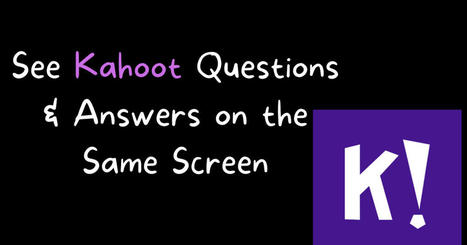


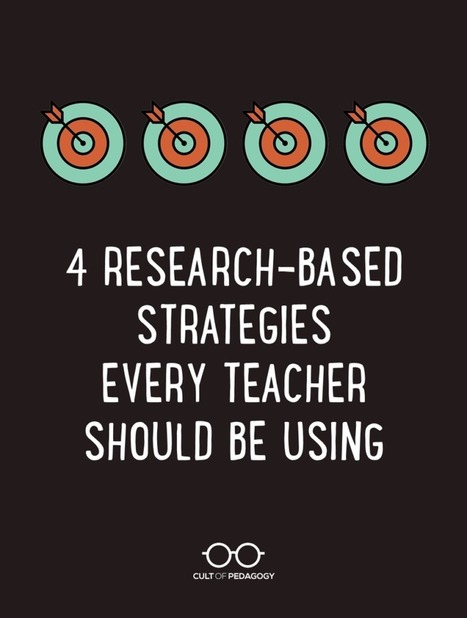

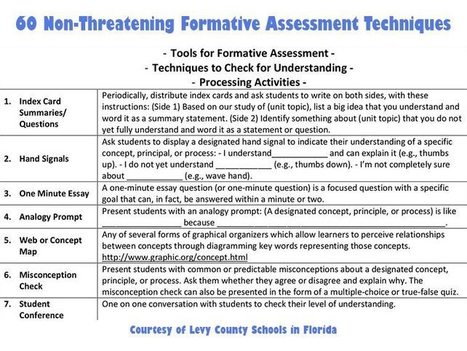


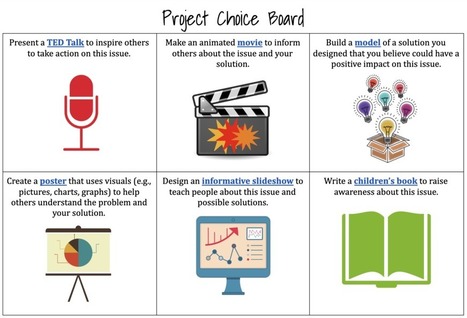






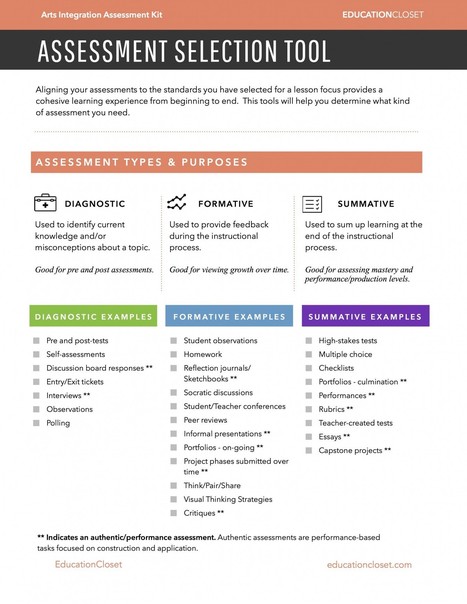





Es una herramienta que gusta a los estudiantes
Es una herramienta que gusta a los estudiantes